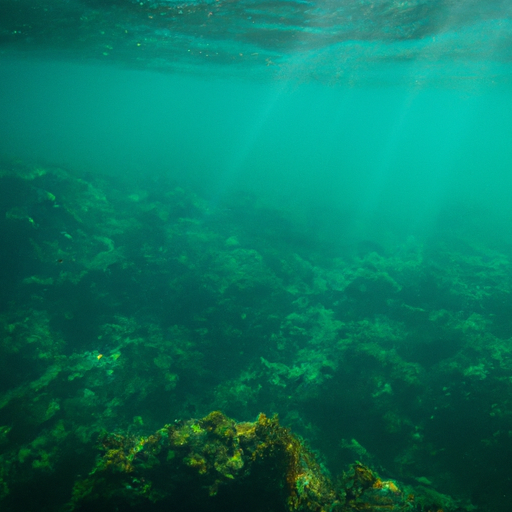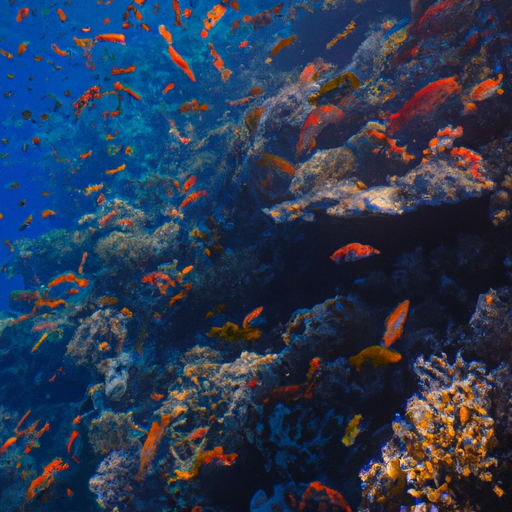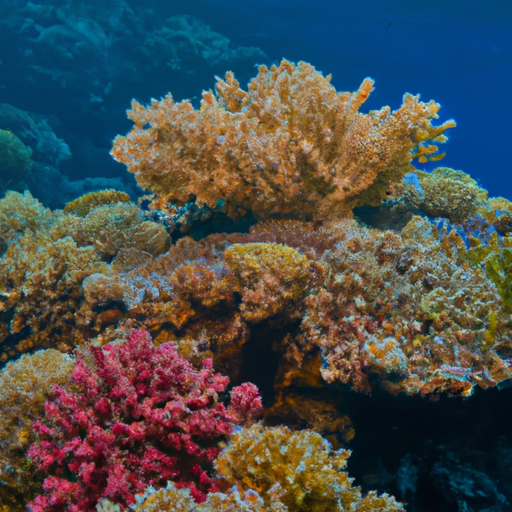
The Significance of Protecting Marine Life: A Call for Conservation Efforts
Marine life plays a crucial role in maintaining the balance of our planet’s ecosystems. From providing a habitat for countless species to supplying oxygen to the atmosphere, the significance of marine life cannot be overstated. However, in recent years, human activities have had a detrimental impact on these delicate ecosystems, leading to a decline in marine biodiversity.
Understanding the importance of conserving marine life is essential if we want to preserve the health and sustainability of our oceans. One of the key reasons for protecting marine life is the immense biodiversity it harbors. The oceans are home to a staggering variety of species, many of which are yet to be discovered. By safeguarding marine life, we can ensure the survival of these unique organisms and the intricate web of life they contribute to.
Furthermore, protecting marine life is essential for maintaining the health of our planet. Marine organisms, such as phytoplankton, play a crucial role in the process of photosynthesis, producing over half of the world’s oxygen. This oxygen is not only vital for the survival of marine life but also for all living organisms on Earth, including humans. Without these organisms, the balance of gases in our atmosphere would be severely disrupted.
Conservation efforts aimed at protecting marine life also have significant economic benefits. Many coastal communities rely on marine resources for their livelihoods. Fishing, tourism, and other industries are dependent on the health and abundance of marine ecosystems. By protecting marine life, we can ensure the long-term sustainability of these industries and the preservation of jobs and economic stability in these communities.
However, despite the clear importance of protecting marine life, many challenges persist. Overfishing, pollution, habitat destruction, and climate change continue to threaten the delicate balance of marine ecosystems. Therefore, it is crucial that we actively support and engage in conservation efforts. These efforts can include implementing and enforcing stricter regulations on fishing practices, reducing plastic and chemical pollution, establishing marine protected areas, and promoting sustainable tourism.
In conclusion, understanding the significance of protecting marine life is paramount to the future of our planet. By conserving marine ecosystems and the biodiversity they support, we can ensure the health of our oceans, the sustainability of economic activities, and the well-being of all living organisms. It is our responsibility to take action now and work towards a future where marine life thrives, for the benefit of both present and future generations.
Understanding the Fragile Ecosystem: Why Marine Life Conservation Matters
Protecting marine life and conserving their fragile ecosystems is of utmost importance. The oceans are home to a vast array of species, many of which are still undiscovered. However, due to various human activities and environmental factors, marine life is facing unprecedented threats.
Conservation efforts are crucial in order to maintain the delicate balance of marine ecosystems. These efforts involve the establishment of marine protected areas (MPAs) where activities such as fishing and oil drilling are restricted, to ensure the preservation of habitats and biodiversity. MPAs provide a safe haven for marine species, allowing populations to recover and thrive.
One of the key reasons why marine life conservation matters is because of the ecosystem services they provide. Marine ecosystems play a critical role in carbon sequestration, helping to regulate climate change. They serve as a habitat for various species, some of which contribute to essential processes such as nutrient cycling and oxygen production.
Conserving marine life also has economic benefits. Many coastal communities depend on fisheries for their livelihoods. Overfishing and destructive fishing practices not only deplete fish stocks but also have long-term negative impacts on the economy and food security. By implementing sustainable fishing practices and protecting marine habitats, we can ensure the viability of fisheries for future generations.
Furthermore, marine biodiversity holds great potential for scientific and medical advancements. Many marine organisms have unique biochemical properties that can be harnessed for the development of new drugs and treatments. Conserving marine life not only preserves these potential resources but also allows for future discoveries and innovations.
Lastly, marine life conservation promotes ecological integrity and sustainability. A healthy marine ecosystem provides resilience against natural disasters such as hurricanes and tsunamis. It also contributes to the overall health of the planet by maintaining water quality and supporting other ecosystems, such as coral reefs and coastal wetlands.
In conclusion, protecting marine life and investing in conservation efforts is of paramount importance. Not only do these efforts help preserve the incredible biodiversity found in our oceans, but they also ensure the provision of crucial ecosystem services, promote economic prosperity, and enable scientific advancements. By understanding the importance of marine life conservation, we can work towards a sustainable future for both current and future generations.
Exploring the Threats to Marine Life and the Need for Conservation
Protecting marine life is of utmost importance in today’s world, as it is facing numerous threats that can jeopardize the delicate balance of marine ecosystems. Conservation efforts play a vital role in minimizing these threats and ensuring the long-term survival of marine species.
One of the key threats to marine life is overfishing. With the increasing demand for seafood, commercial fishing has become more intense than ever before. This has led to a significant decline in fish populations, disrupting the food chain and causing imbalances in marine ecosystems. By implementing sustainable fishing practices and regulations, we can protect fish populations and maintain the health of our oceans.
Pollution is another major threat to marine life. Runoff from agriculture and industry, as well as improper waste disposal, has contributed to the contamination of marine habitats. In particular, plastic pollution has become a pressing issue, with millions of tons of plastic waste ending up in the oceans each year. This not only harms marine species directly, through entanglement and ingestion, but also affects their habitats and food sources. Conserving marine life involves tackling pollution at its source, adopting environmentally friendly practices, and promoting recycling and waste reduction.
Climate change is also having a profound impact on marine ecosystems. Rising sea temperatures, ocean acidification, and extreme weather events are causing widespread damage to coral reefs and other vulnerable habitats. These changes affect the survival and reproduction of many marine species, leading to declines in their populations. Conservation efforts are needed to mitigate climate change by reducing greenhouse gas emissions and promoting the resilience of marine ecosystems through the establishment of marine protected areas and the restoration of degraded habitats.
Biodiversity loss is yet another threat to marine life. Destruction of coastal habitats, such as mangroves and seagrass meadows, has a significant impact on the abundance and diversity of marine species. These habitats serve as nurseries for many marine organisms, provide essential feeding grounds, and protect coastlines from erosion. By promoting the conservation and restoration of these habitats, we can safeguard the rich biodiversity of our oceans.
In conclusion, protecting marine life is crucial for the well-being of our planet. Conservation efforts are essential for mitigating the threats posed by overfishing, pollution, climate change, and biodiversity loss. By understanding the importance of these efforts and taking collective action, we can ensure the survival and thriving of marine species for future generations.
Taking Action: Effective Strategies for Safeguarding the Future of Marine Life
Protecting marine life is of utmost importance in our ongoing efforts to conserve and safeguard our planet’s biodiversity. The world’s oceans are home to a diverse array of species, many of which are facing significant threats due to human activities and climate change. Understanding the importance of conservation efforts is crucial for taking action and ensuring the future well-being of marine life.
Marine life plays a vital role in maintaining the balance of our ecosystems. Just as forests are the lungs of the Earth, oceans are often referred to as the planet’s life support system. They provide oxygen, regulate our climate, and supply us with food and resources. Conserving marine life is not only important for its intrinsic value but also for the numerous benefits it brings to human societies.
Preserving marine life also has economic significance. The fishing and tourism industries, which heavily rely on vibrant marine ecosystems, contribute billions of dollars to the global economy. Protecting marine life ensures the sustainability of these industries and the livelihoods of millions of people who depend on them.
One key conservation effort is the establishment of marine protected areas (MPAs). These designated zones aim to safeguard critical habitats and species by limiting human activities such as fishing and industrial development. MPAs serve as sanctuaries where marine life can thrive and populations can recover. These areas not only provide a safe haven for vulnerable species but also act as a buffer against climate change impacts.
Another important aspect of marine life conservation is reducing pollution and mitigating the effects of climate change. Pollution, such as plastic waste and oil spills, poses a significant threat to marine ecosystems. Efforts to reduce single-use plastics and promote recycling can help prevent further degradation of marine habitats. Furthermore, reducing greenhouse gas emissions and combating climate change can help protect marine life from the devastating effects of rising sea temperatures and ocean acidification.
Education and awareness also play a vital role in conserving marine life. By educating the public about the importance of marine ecosystems and the impacts of human activities, we can inspire individuals to take action and make informed choices. Encouraging sustainable practices such as responsible fishing, supporting eco-friendly tourism, and advocating for policy changes are all effective strategies in safeguarding the future of marine life.
In conclusion, protecting marine life is crucial for maintaining the health and balance of our planet. Conservation efforts, including the establishment of marine protected areas, reducing pollution, mitigating climate change, and promoting education and awareness, are essential in ensuring the long-term survival of marine species and the continued provision of vital ecosystem services. By understanding the importance of these efforts and taking action, we can make a positive impact on the future of marine life.


